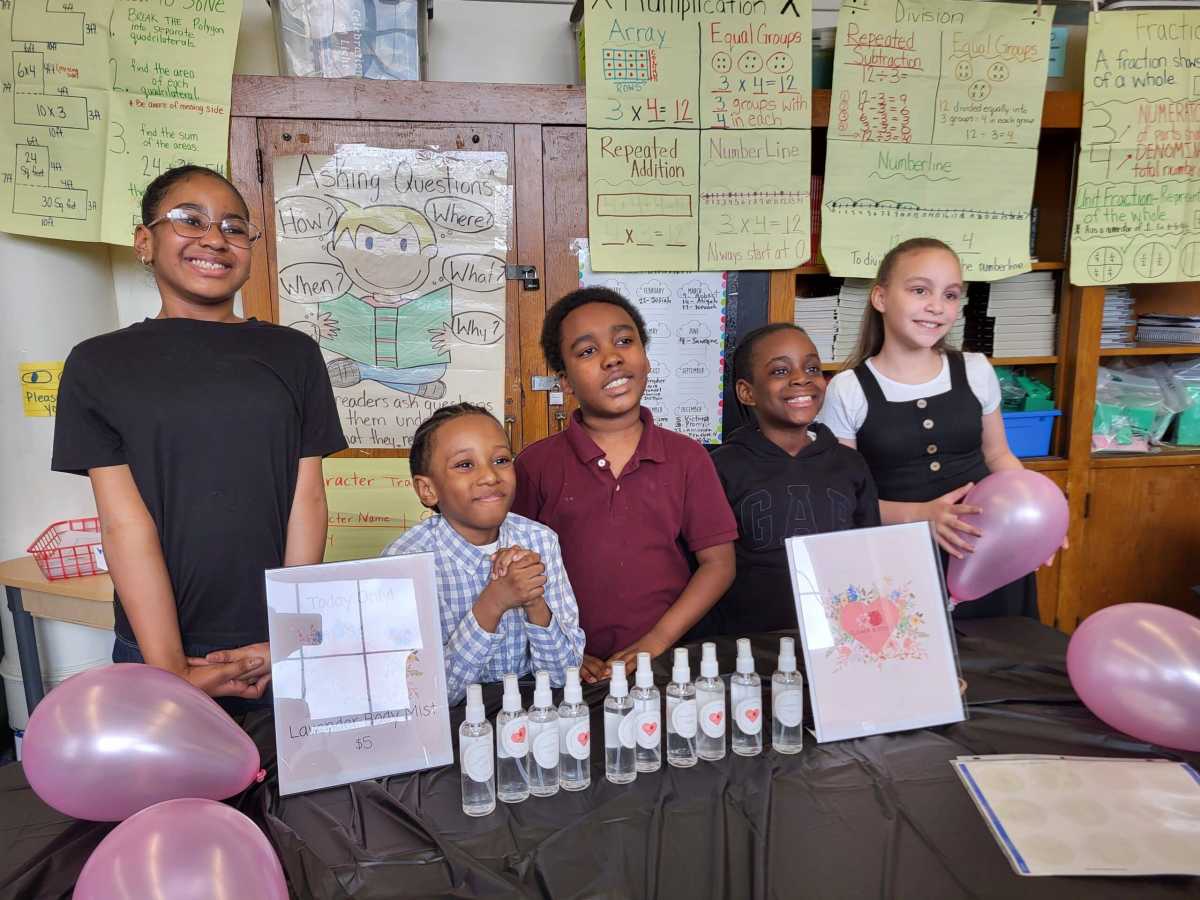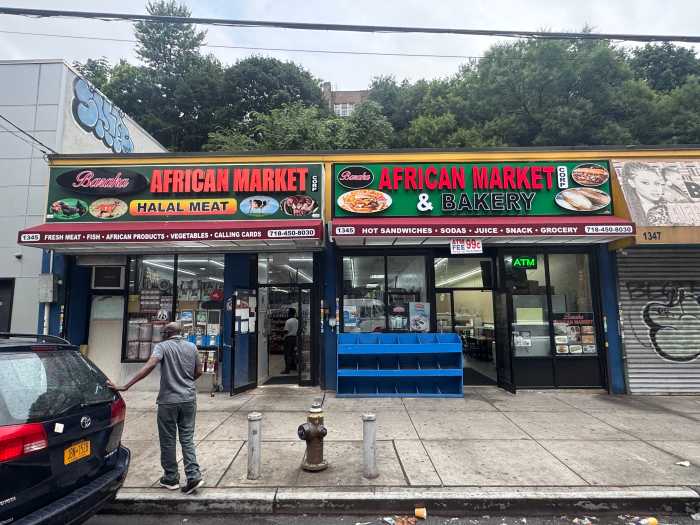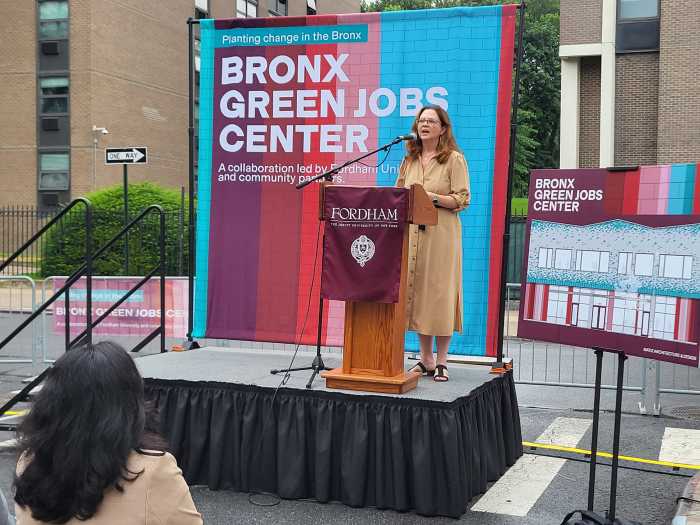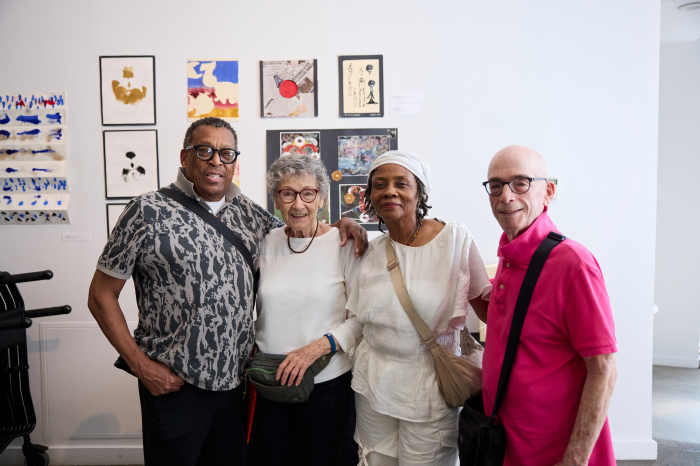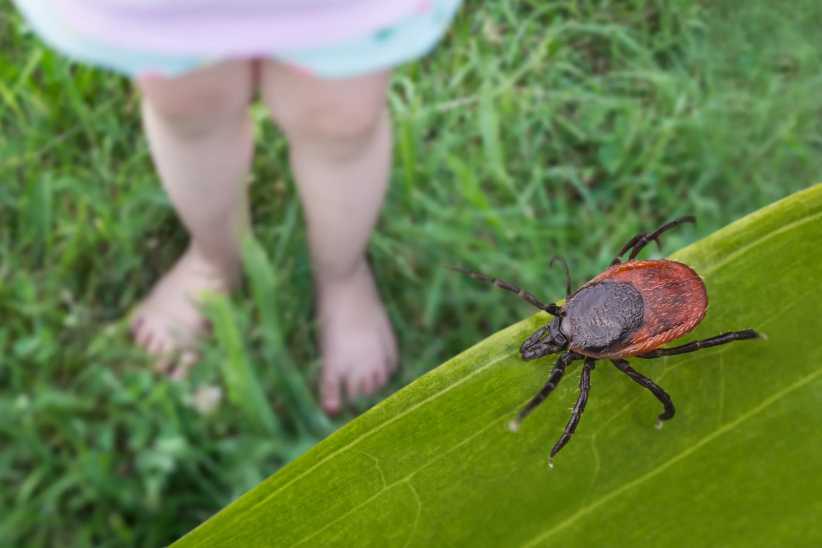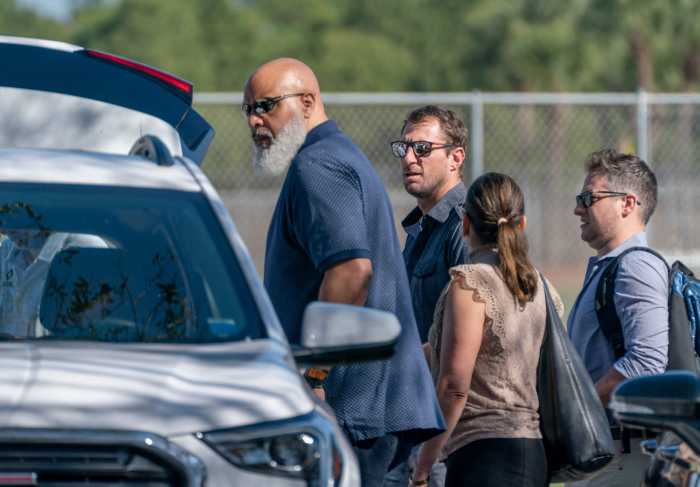As a beauty industry professional turned entrepreneur, Gena Surphlis discovered a winning combination: teaching young people to make all-natural skincare products along with the skills to market them to a real audience. In fact, that combination recently won Surphlis $10K.
With Cooking Cosmetics, which Surphlis established in 2010, she and instructors spend their days working with students ages 8 to 18, giving them a crash course in simple, natural ingredients as well as entrepreneurship.
Over the years, many youth organizations have been eager for her type of unique experience that gives students a confidence boost and new skill set.
“It just took off,” Surphlis said.
And the future of Cooking Cosmetics looks even brighter now. Last fall, Surphlis entered the 1010 Wins Small Business Challenge last-minute and on a whim. She pitched her concept to a three-judge panel and — to her surprise — won the contest in December, along with a $10,ooo prize.
Surphlis, a Co-Op City native, has a background in the beauty industry. She received a master’s degree from the Fashion Institute of Technology (FIT), where she completed a capstone project on clean beauty products and later began working in ingredients and fragrance development.
At that time, Surphlis said, it was not a given that consumers would care about what’s in their soap, lotion and makeup. But today, “clean beauty,” as the industry is known, is closer to the norm.
According to Forbes, clean beauty occupies a significant chunk of the multibillion-dollar global beauty market — and it is growing rapidly. Valued at $7 billion in 2022, the clean beauty industry is expected to double to $14 billion by 2028. Savvy consumers now read labels and expect their products to be free from synthetic fragrances and colors, parabens (chemical preservatives) and other additives.
Though some may see the beauty industry as frivolous, Surphlis said her program is actually “encouraging knowledgeable future consumers.”
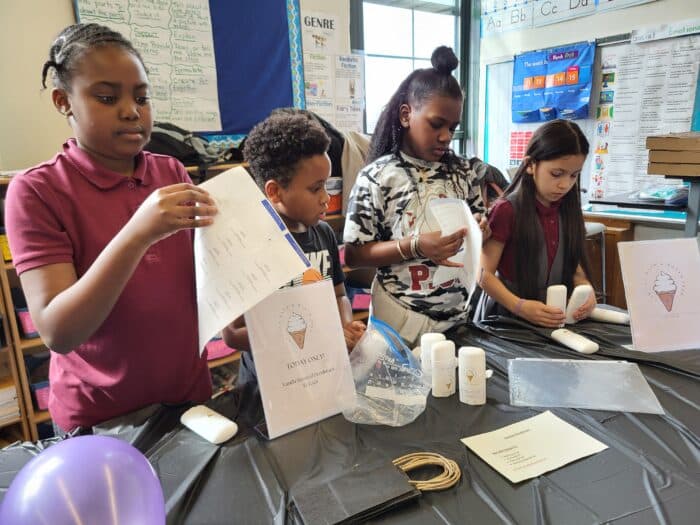
Surphlis was early to the clean beauty scene, but it was her struggle to manage her son’s health — he has sickle cell anemia — that drove home the importance of knowing what goes in and on the body.
As she learned more about unnatural ingredients found in everyday products, she decided it was best to “limit my exposure to things and bring it back to basics.”
Surphlis lives by a simple rule: if you can’t pronounce it, you probably shouldn’t put it on your body. She now teaches that concept to young people.
The curriculum varies depending on age group, Surphlis explained. With high-schoolers, she focuses on self-esteem, health and scientific concepts. With younger kids, she does more of the legwork but still gives them plenty of tips for identifying natural ingredients and interacting with others in a mock market situation.
She hopes her “start ‘em young” philosophy will help more young people gain confidence and nurture well-being — all while planting seeds that may grow into future entrepreneurs.
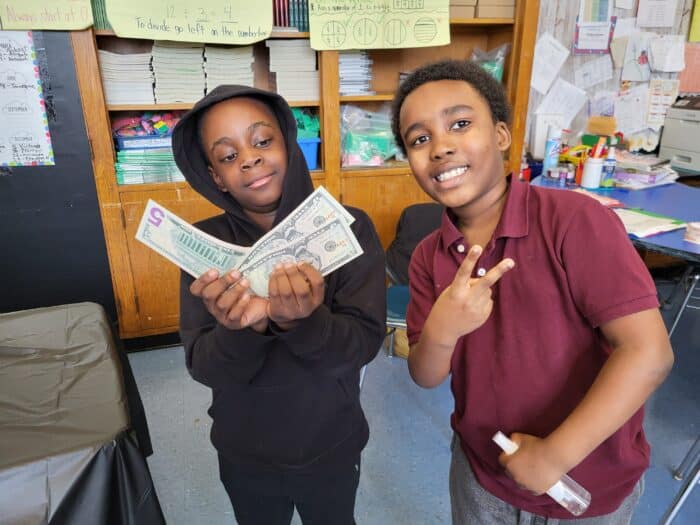
At Bronx P.S. 041 on March 15, a group of 20 students in third and fourth grade met after school with an important task: their natural beauty products were back from the “manufacturer” (that was Surphlis) and needed to be prepped for “sale” to peers at a mock market.
The students were already working in four “companies,” each with its own product. Students developed the company names and approved a pilot product, but Surphlis made the final batches and created the logo stickers. Right before the market, students applied the stickers to bottles and arranged the products on tables.
The groups offered rose bubble bath (company name Space Cosmetics); vanilla deodorant made with baking soda (Vanilla Bath and Bodyworks); lavender body spray (Flower Buddy); and coconut body cream (Good Product Boys).
Surphlis instructed the company reps to not just hand over the goods but to engage in conversation with shoppers about product ingredients and usage.
As a group of “shoppers” filed into the classroom holding wads of play money, they began to explore the market and ask questions. Buyers and sellers were excited and chatty as they began sniffing the body spray and covering their hands with cream. White deodorant crumbs covered the table in no time.
Despite the chaos, “Right now we are showing professionalism,” Surphlis told the group. “We are speaking about our company.”
Students had a blast sampling products and swapping for play money, and they celebrated with a pizza party afterwards. They also received certificates, recipes and empty containers for whipping up the natural products at home.
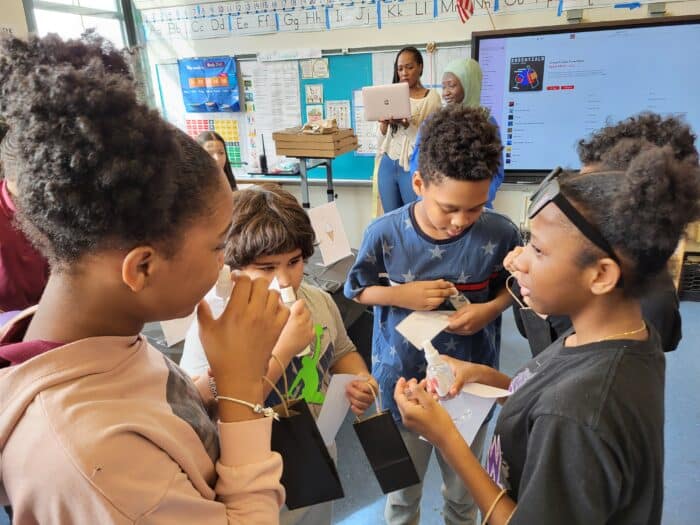
Jonnel, age 8, told the Bronx Times that he wants to be an NFL player when he grows up. When asked if the market might somehow help him achieve that goal, he said yes.
“I’m gonna catch the ball because my hands are soft,” Jonnel said.
Annalis, 8, and Taylor, 9, were in the group selling vanilla deodorant.
“I liked how customers came and they had the choice to smell our items,” said Annalis.
Both girls said they felt great when peers chose their product. Taylor said she was “excited and grateful” that people enjoyed it.
Eight-year-old Noah’s company, Flower Buddy, was the first to sell out.
“We had a lot of customers and made a lot of money,” he said.
With this eight-week workshop over and spring starting, Cooking Cosmetics has no plans to slow down.
With the contest winnings, Surphlis said she will add summer programming and is working hard to hire instructors, whom she said have been harder to find since the pandemic. She also hopes the funds might enable her to work directly with clients rather than sub-contracting into the schools. In this case, Cooking Cosmetics at at P.S. 041 operated through Mosholu-Montefiore Community Center (MMCC)’s Compass 41 afterschool program, funded by the city’s Department of Youth and Community Development.
For these young students, Surphlis hopes the market made a lasting impression. And it wasn’t just the fake buying and selling that students found gratifying: Noah said he liked knowing that his friends “have something for themselves that they can use every day.”
This story was updated at 9:45 a.m. on March 25 to mention the name and funding source of the afterschool program.
Reach Emily Swanson at eswanson@schnepsmedia.com or (646) 717-0015. For more coverage, follow us on Twitter, Facebook and Instagram @bronxtimes

